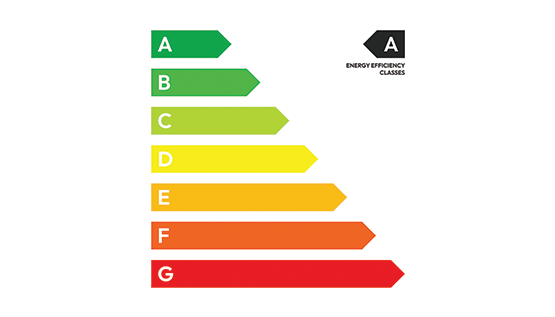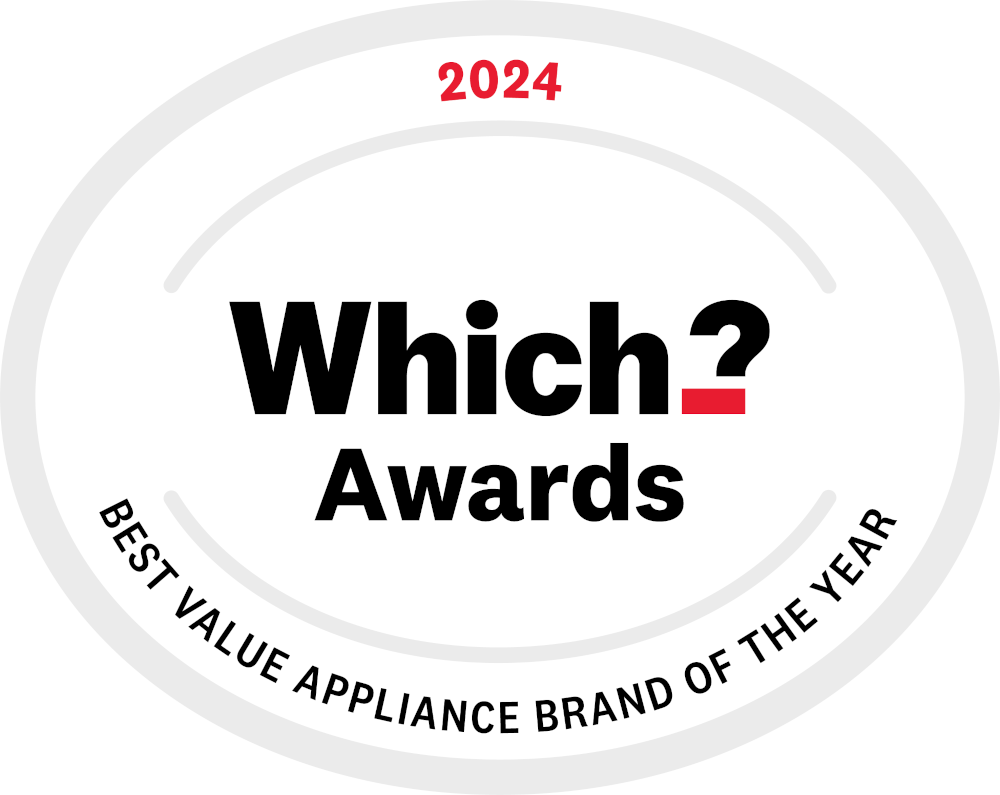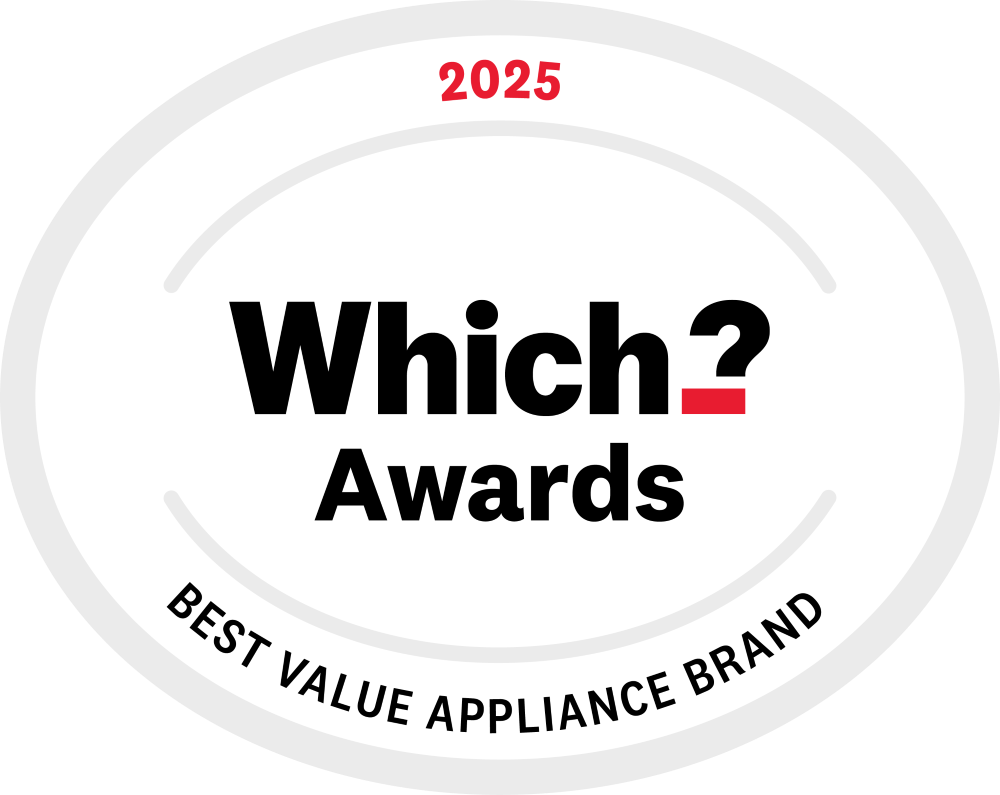Understanding Fridge Freezer Energy Ratings
Each fridge freezer comes with its own energy rating label, providing insight into its expected energy consumption. Understanding these ratings and how fridge freezers differ from other appliances can help select a model that best suits your needs and energy preferences.
Energy ratings are essential for any appliance that uses electricity in your home. In this guide, we will explore what you need to know about fridge freezer energy ratings, how to choose the right one for you, and clarity common misconceptions about energy labels.

Introduction to Energy Ratings
Energy ratings for fridge freezers differ from those for other appliances. In addition to considering the energy rating on your label, you also need to account for the size of your appliance. Fridge freezers come in various sizes and styles, each with its own energy rating. Understanding these ratings helps you gauge your appliance’s energy consumption, its environmental impact, and its effect on your utility bills.
Reading Energy Labels

Your energy label should be attached to your appliance, and this information is also typically included in your user manual and available online. If you’re struggling to find the energy rating for your specific model, contact the manufacturer for more information.
Fridge freezer energy labels will come in bands A to G, with A being the most efficient appliance of that size and G being the least. This way, you can better compare appliances for their energy efficiency. Your energy label should also tell you how much energy your appliance will use per year, which is important for appliances such as fridge freezers that must be running 24/7.
Global Energy Rating Standards

Global energy rating standards are the guidelines manufacturers need to follow when rating the energy efficiency of their appliances. There are multiple types of standard rating processes, each with its own criteria that your appliances need to pass to be rated correctly – some examples of standards include Energy Star, the international standard for products made in the United States of America, and the European Union Energy Label. All appliances should have an energy label and be backed by one of these global standards. It is important to consider the different standards when planning on buying a new appliance, as products made in the EU might be rated differently from those made in the USA.
Benefits of Higher Energy Ratings
An appliance with a higher energy rating can benefit some homes. When comparing models, energy ratings might be one of your considerations, so it's important to know the benefits of a higher energy rating. Here, we will explore the benefits of more energy-efficient fridge freezers.
Cost Savings Over Time
There are multiple ways that a higher-rated appliance can save you money over time. One way a good energy rating can save you money is by using less energy per hour, which can be very important for appliances such as fridge freezers, which need to be running 24/7. By using less energy, you can cut down on your utility bills by driving down your energy usage overall across the year.
Another way that more energy-efficient models of fridge freezers can save you money is through longevity. These appliances are often designed and built with durability in mind, as the longer they last at an efficient level, the less energy they will consume—saving you money on having to buy new appliances regularly.
Environmental Impact
More energy-efficient models can help you better your impact on the environment. By finding models with energy-efficient technology, you can reduce the energy you’re using overall and potentially keep your appliance for longer – making it better for the environment, and your pocket, as you won’t need to replace your fridge freezer as often. You can reduce your energy consumption by saving on your electricity and water bills and cutting down your energy. “A”-rated fridge freezers are the most efficient models, and “G”-rated fridge freezers are the least efficient models, which could use more energy and drive your utility bills up.
How to Choose the Right Energy Rating
Finding the right fridge freezer for you isn't only about choosing a size and style that suits your kitchen but also about choosing an energy rating that works for your environmental and budgeting goals. By comparing models, you'll better be able to find the fridge freezer that fits your kitchen, wants, and needs.
Assessing Your Needs
The first step in any fridge freezer purchase is assessing your needs and making sure your potential models have the features you want for your kitchen. Whether this is a water dispenser, an American style fridge freezer with plenty of space, or something that can fit a smaller kitchen, you need to ensure that the fridge freezer you choose fits your requirements. A main priority for you might be a higher energy rating, which will help you reduce your impact on the environment or even save money in the long run. If this is the case, you’ll need to look for models within the rating band you want.
Comparing Market Models
When buying a fridge freezer, it is important to compare models on the market to find the right one for you, not only for style but also for energy ratings. By finding an energy-efficient fridge freezer that works for you, you’ll be able to enjoy your kitchen, knowing your appliances are exactly what you want. By comparing, you can find the best price for your model while also finding one that is energy efficient without compromising on the features you want and need for your groceries to be fresher for longer. Remember to compare similar models or consider the sizes when comparing energy ratings.
Energy Rating Myths Debunked
Energy ratings have plenty of myths. Common misconceptions can hinder the buying process or make it a bit more complicated, so by understanding what is real and what is not, you can better go into your purchases informed. Here, we will break down some of the common myths and what you need to know.
Common Misconceptions
One common misconception many buyers have when it comes to buying an energy-efficient fridge freezer is that an A rating is the best you can get. However, energy ratings are done by category when it comes to fridge freezers, so a “B”-rated smaller fridge might use the same energy as an “A”-rated larger fridge due to their needs as an appliance.
Another misconception is that an energy-efficient fridge might not be worth the money. However, this can be a long-term investment that can help drive down costs over time, making it a more cost-effective measure than cheaper, less efficient models.
Real Facts About Energy Efficiency
Energy-efficient fridge freezers can help reduce costs over time. Due to their durability, as well as their energy-cutting technology, you can cut down on utility bills and repurpose them to drive down your household costs over time. Rather than buying multiple fridges over the decades, products with longer lifespans can see you through longer and save you money.
Energy efficiency is possible with products such as fridges, which must remain on 24/7. While they constantly need energy, they are designed to use as little as possible. Proper care and maintenance can actually improve your fridge’s performance and keep it running effectively.
Energy efficiency is something you might think about when purchasing a fridge freezer, but it might not be your main consideration. However, by knowing what energy ratings mean and how to compare them correctly, you can save money overtime and make sure you’re getting the best freshness without compromising on your utilities or energy consumption.
Did we answer your question?
We are so sorry we were unable to answer your question. You might be able to find the answer you are looking for in the ‘Related Questions’ below. If your query is still unanswered, please head over to our Contact Us page for further assistance.
Search FAQ’s
Search or browse our frequently asked questions to find the answer to your query.




